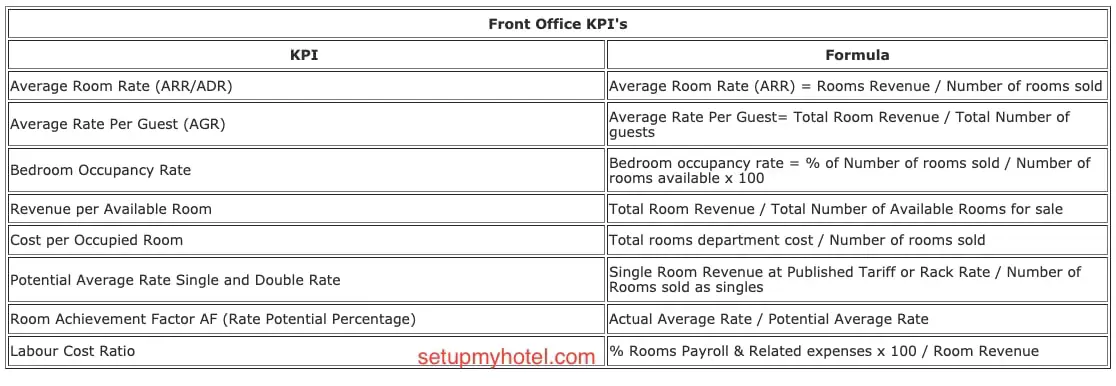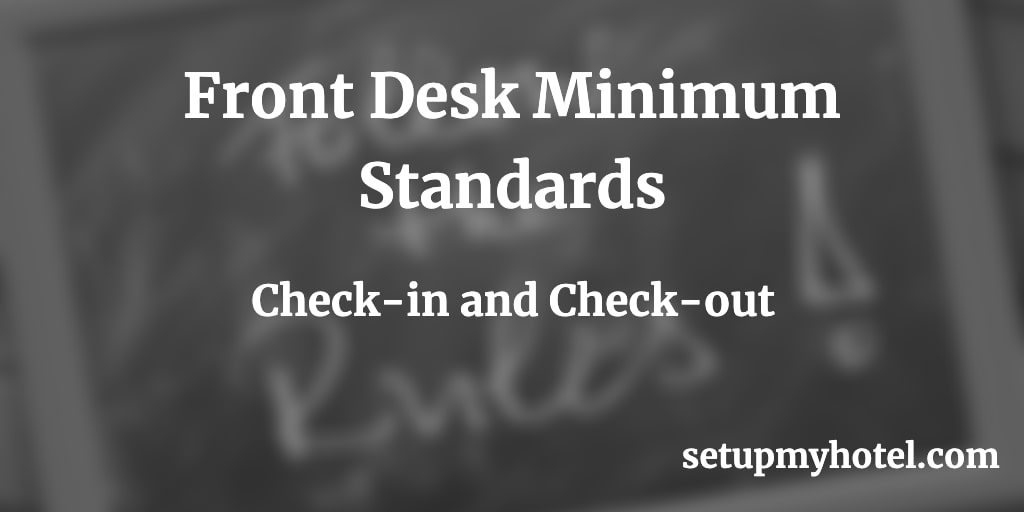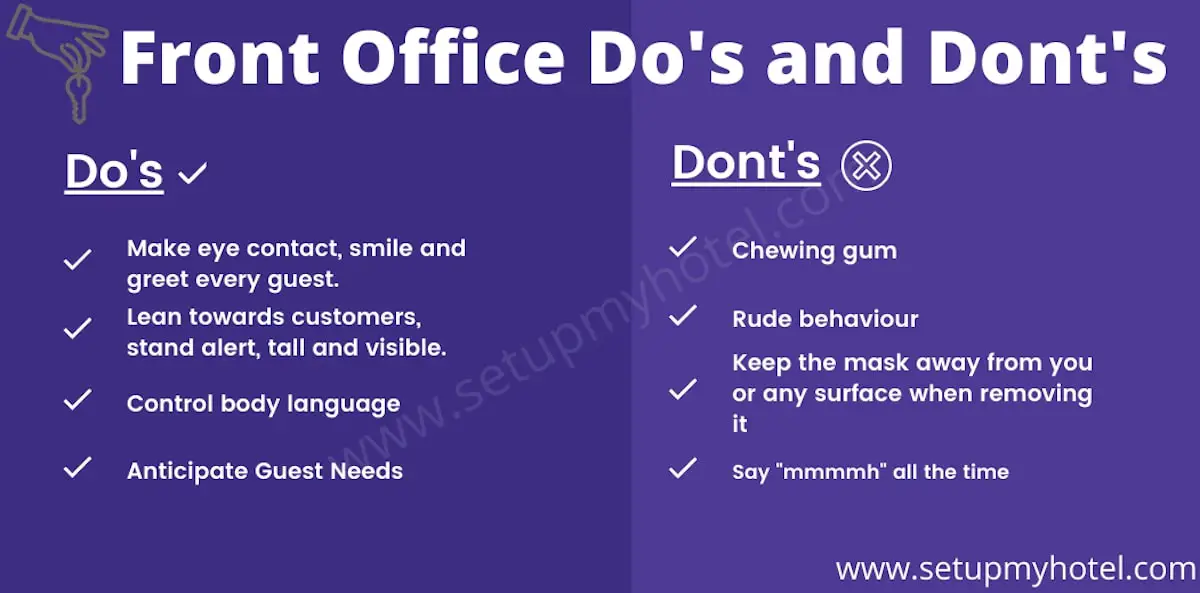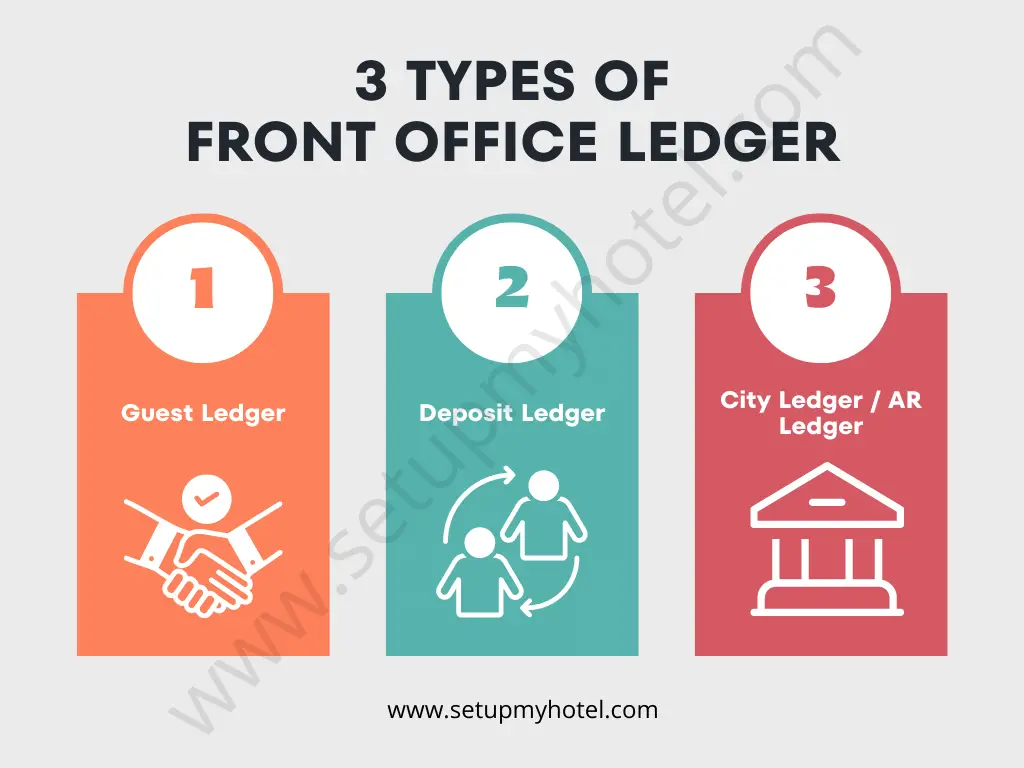Daily Tasks List / Shift Checklist – Club Floor / Executive Floor
Executive Floor / Club Floor Shift Checklist Club Floor Morning Shift Checklist Club floor afternoon shift checklist
Read more
Guest Relations Executive / Officer (GRE/GRO) Shift Checklist
Guest Relationship Executive / Officer (GRE/GRO) Shifts Checklist Morning Shift Checklist and Tasks: 1. Is your Uniform nicely pressed, clean, and ...
Read more
Front Office KPI’s (Key Performance Indicators) List – Hotels

List of KPI (Key Performance Indicators) Used in Hotel Front Office Key Performance Indicators (KPIs) are essential for measuring the ...
Read more
41 Etiquettes And Manners For Hotel Staff / Front Office Staffs

Etiquettes and Manners for Hotel Staff / Front Office Staff Working in the hospitality industry requires a high level of ...
Read more
Guidelines for Handling Credit Cards

Handling Credit Cards Credit cards are an essential tool for managing personal finances. However, they can also be a source ...
Read more
Front Office Magic Words, Phrases, Greetings and Courtesy Language Examples

Example Front Office Magic Words, Phrases, Greetings and Courtesy Language Used by Hotel Staff As the saying goes, “first impressions ...
Read more
How to Handle Guest Relations In A Crisis Situation?

How to Handle Guest Relations in a Crisis Situation? As a guest relations officer, it is important to be prepared ...
Read more
Minimum Standards For Check-In And Check-Out

Minimum Standards for Check-in and Check-out When it comes to working at the front office of a business, there are ...
Read more
Front Office Do’s and Dont’s

Front Office Staff Do’s & Dont’s When it comes to working at the front office of a business, there are ...
Read more
3 Types Of Front Office Ledger In Hotels

Types Of Front Office Ledger In Hotels Introduction: What is a front office ledger in hotels? The front office ledger ...
Read more









